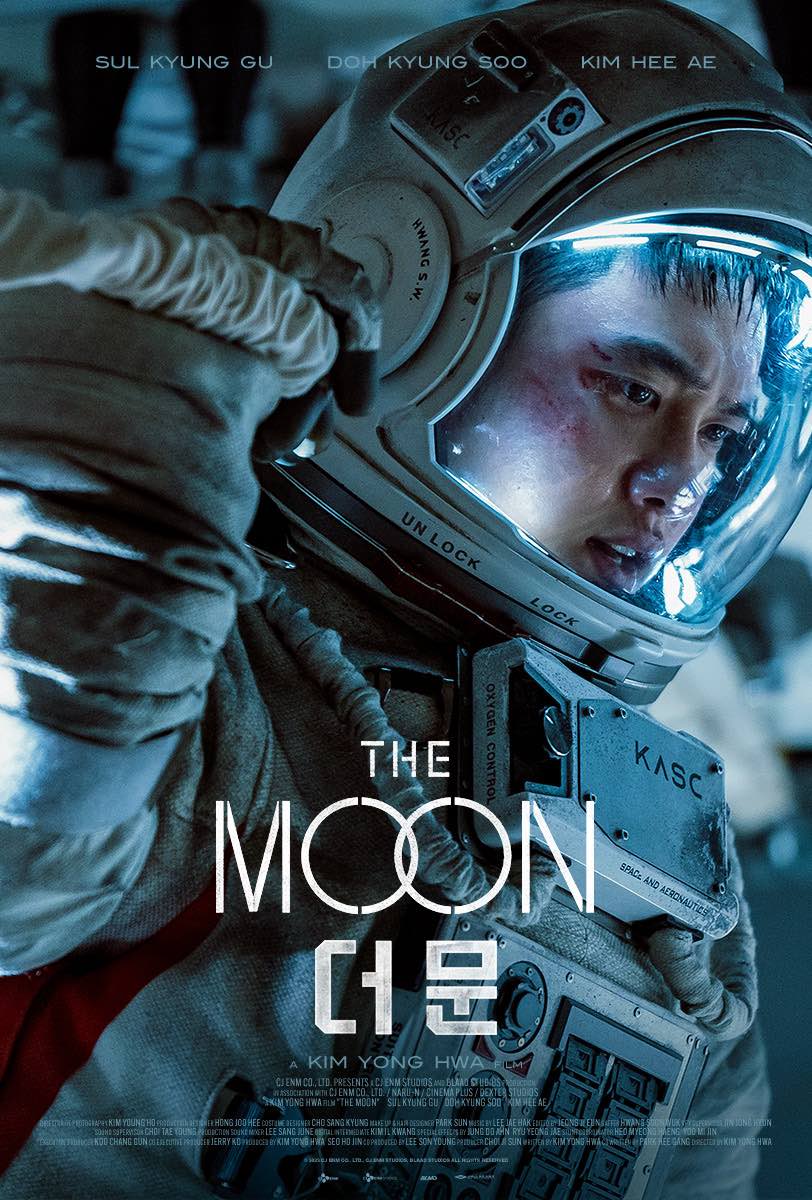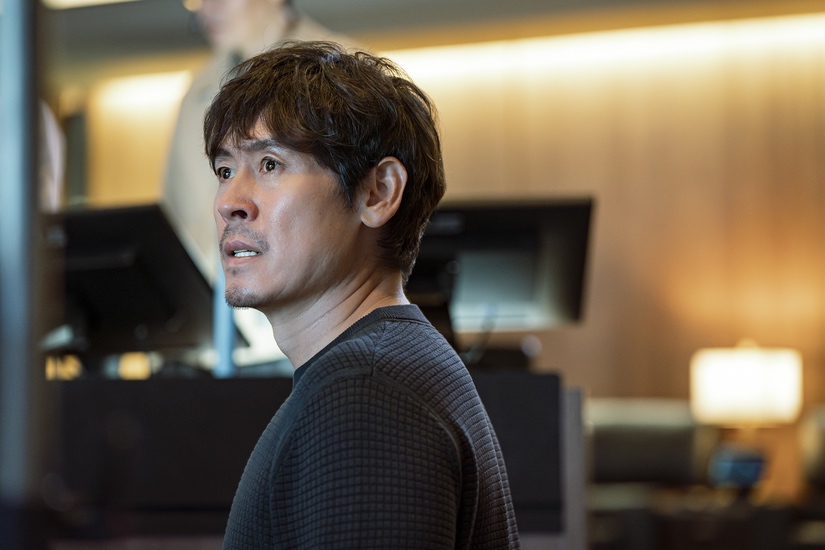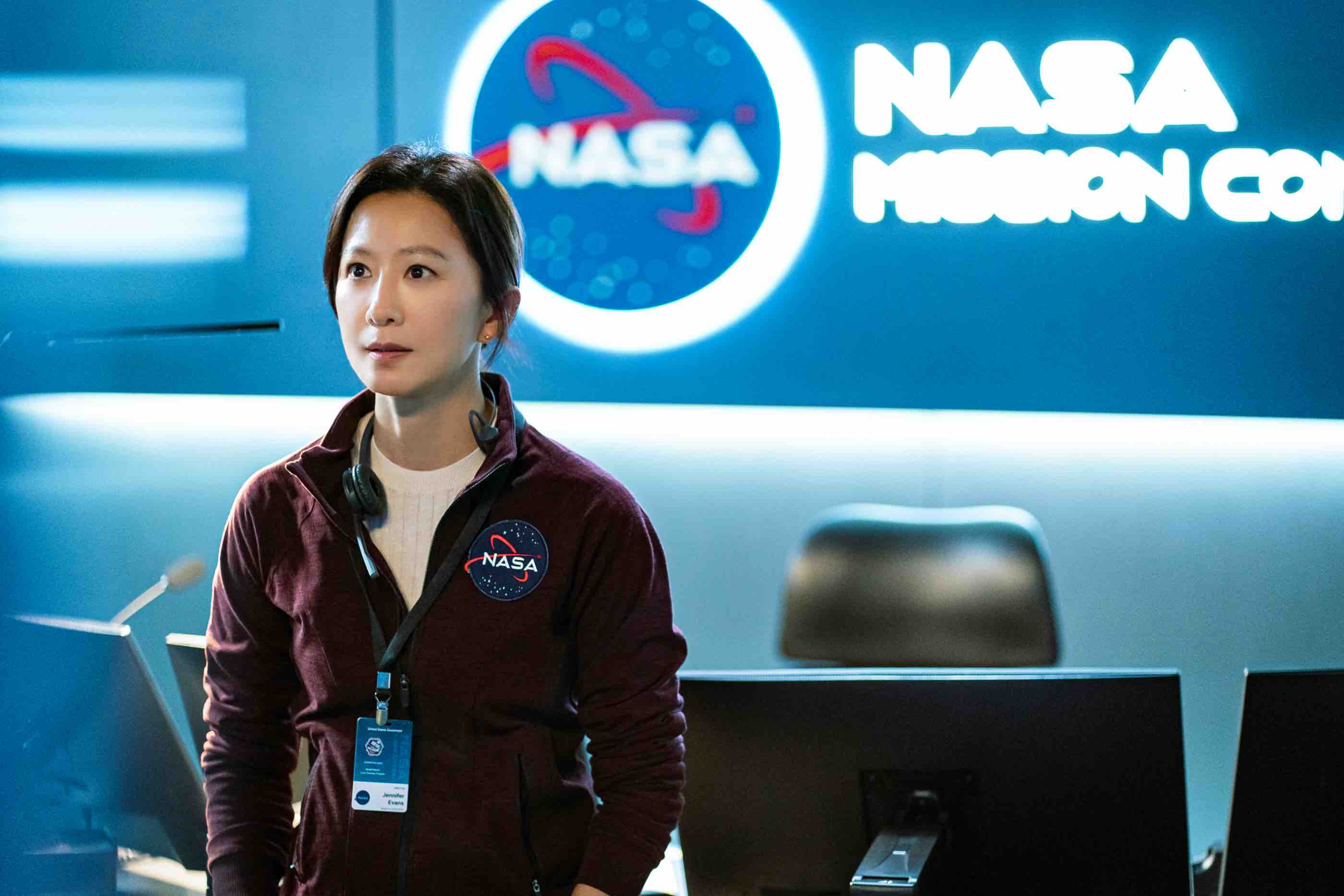REVIEW: Korean film 'The Moon' marries K-drama with American disaster storytelling
Set in the near future, The Moon opens with South Korea launching its second manned moon mission following its first failed attempt, and hopes are high.
When a disastrous solar event ends the lives of his crewmates, astronaut Hwang Sun-woo (played by Doh Kyung-soo of K-pop EXO) enters into a desperate race for survival. As the Korean space agency works with disgraced former flight director Kim Jae-guk (Sol Kyung-gu, The Merciless) to bring Hwang home, the stranded astronaut presses forward, determined to complete the mission for his fallen comrades.

The latest effort from Kim Yong-hwa, who previously made his name on lighthearted fare 200 Pounds Beauty (2006), The Moon continues the director’s foray into crafting stories with homegrown CGI via his own Dexter Studio. Propulsive in pace and endlessly engaging, The Moon cherry-picks elements of similar space-based survival thrillers like Apollo 13 (1995) and Gravity (2013)—with dashes of Ad Astra (2019) and Interstellar (2014) thrown in for good measure. What makes the film stand out is the seamless integration of K-drama’s signature emotionality, meticulous production design, and national pride to deliver an experience that is uniquely, unmistakably, Korean.
This isn’t to say that the film is flawless as the screenplay features no shortage of narrative contrivances. It’s a heck of a stretch that the sole survivor of a doomed Korean moon shot is the son of the original flight director’s partner, but having that same flight director’s ex-wife (Kim Hee-ae, Queenmaker) be his counterpart over at NASA is convenient beyond reason. Thankfully, Kim’s brisk direction and the talented cast keep things moving well enough that invoking one’s suspension of disbelief is largely painless.
Sol Kyung-gu leads the ensemble as the archetypal outsider whose specialized knowledge spells the difference between life and death. When introduced, the former flight director is a shadow of his former self, working out of an old observatory, assisted by a lone intern (Hong Seung-hee, Move to Heaven) who has no idea about her boss’s tragic backstory. When the Korean space agency asks for Kim’s help, the intern tags along for no other reason than to provide some much-needed levity. Naturally, her youthful enthusiasm will play a crucial role in the events to come.

Jo Han-chul (Hometown Cha-Cha-Cha) plays Korea’s Minister of Science, a vainglorious politician whose over-the-top mannerisms provide many of the film’s most entertaining moments. The Minister is the closest the film gets to having a villain, and the scenes pitting him against the current space center director (played by Kingdom’s Park Byung-eun) are as evocative as anything happening in space.
As the man at the center of the crisis, Doh Kyung-soo is excellent as the bull-headed navy seal-turned-astronaut who will go to any lengths to accomplish the mission. Playing well off his veteran castmates, the K-pop mainstay doesn’t overplay the role, communicating more through his eyes and body language than any amount of dialogue. Wordlessly expressing shock, pain, fear, anger, and more, Doh puts a very human face on the situation, allowing us to empathize with him, even when he’s being stubborn.
Following their work on the whimsical visuals of Kim’s Mr. Go (2013) and the high fantasy action of his Along with the Gods comic adaptations, Dexter Studio eschews science fiction tropes to rely on (mostly) science facts to present plausible, pulse-pounding sequences. From the freak disaster that gets things rolling, to the heart-stopping scenes of Hwang’s fight to survive the infinite emptiness of space, the quality and clarity of The Moon’s CGI storytelling stand in stark contrast to Hollywood’s increasingly-generic output.

Another area The Moon stands out is in having no qualms about openly declaring its politics, an overall message of working together towards a common goal pretty much spelled out via the nations that get called out in the final act. It may not be as entirely on the nose as the declaration of July 4 as a global holiday in Independence Day (1996), but it comes close. In any case, the characters’ collective decision to stop letting their traumatic past control their present and/or future is one well-realized, leading to several tear-jerking moments.
Is it overwrought? Kind of. Is it melodramatic? Undoubtedly. But while it’s highly unlikely that anybody would have been allowed to broadcast their grievances, apologies, hopes, and dreams for the whole planet to hear, this is far from the first movie to have characters work out their traumas in mission control for dramatic purposes, so it’s genuinely difficult to get upset—especially when the results are so entertaining.
Pulitzer Prize-winning critic Roger Ebert once described films of this type as, “bruised forearm” movies, where the excitement onscreen was directly proportionate to the grip one’s date would have on their forearm. Representing an irresistible fusion of Korean storytelling and American disaster filmmaking tropes, The Moon is a bruised forearm movie of the highest order, and a blockbuster definitely worth heading out to the cinema for.
Your move, Hollywood.
The Moon opens in Philippine cinemas on August 16. Watch the trailer below.


